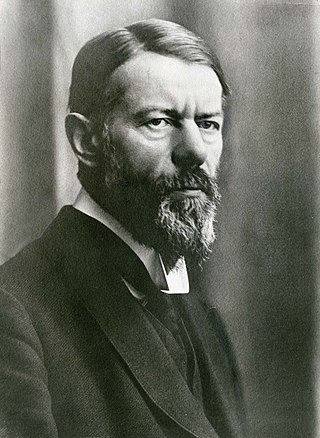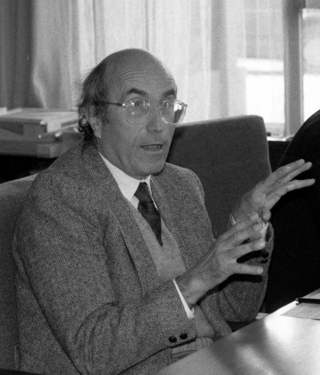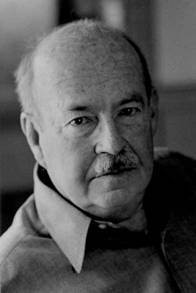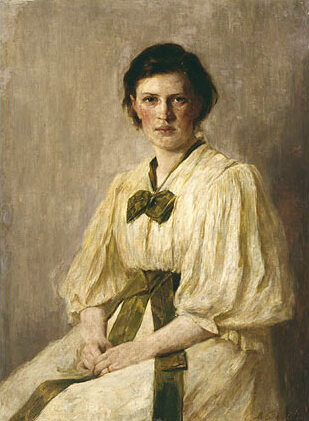
Maximilian Carl Emil Weber was a German sociologist, historian, jurist, and political economist who was one of the central figures in the development of sociology and the social sciences more generally. His ideas continue to influence social theory and research.

Niklas Luhmann was a German sociologist, philosopher of social science, and a prominent thinker in systems theory.

Talcott Parsons was an American sociologist of the classical tradition, best known for his social action theory and structural functionalism. Parsons is considered one of the most influential figures in sociology in the 20th century. After earning a PhD in economics, he served on the faculty at Harvard University from 1927 to 1973. In 1930, he was among the first professors in its new sociology department. Later, he was instrumental in the establishment of the Department of Social Relations at Harvard.

Alfred Schutz was an Austrian philosopher and social phenomenologist whose work bridged sociological and phenomenological traditions. Schutz is gradually being recognized as one of the 20th century's leading philosophers of social science. He related Edmund Husserl's work to the social sciences, using it to develop the philosophical foundations of Max Weber's sociology, in his major work Phenomenology of the Social World. However, much of his influence arose from the publication of his Collected Papers in the 1960s.

Werner Sombart was a German economist, historian and sociologist. Head of the "Youngest Historical School," he was one of the leading Continental European social scientists during the first quarter of the 20th century. The term late capitalism is accredited to him. The concept of creative destruction associated with capitalism is also of his coinage. His magnum opus was Der moderne Kapitalismus. It was published in three volumes from 1902 through 1927. In Kapitalismus he described four stages in the development of capitalism from its earliest iteration as it evolved out of feudalism, which he called proto-capitalism to early, high and, finally, late capitalism —Spätkapitalismus— in the post World War I period.

The Protestant Ethic and the Spirit of Capitalism is a book written by Max Weber, a German sociologist, economist, and politician. It began as a series of essays, the original German text was composed in 1904 and '05, and was translated into English for the first time by American sociologist Talcott Parsons in 1930. It is considered a founding text in economic sociology and a milestone contribution to sociological thought in general.
The Religion of China: Confucianism and Taoism is a book written by Max Weber, a German economist and sociologist. It was first published in German under the title Konfuzianismus und Taoismus in 1915 and an adapted version appeared in 1920. An English translation was published in 1951 and several editions have been released since.
The Protestant work ethic, also known as the Calvinist work ethic or the Puritan work ethic, is a work ethic concept in sociology, economics, and history. It emphasizes that a person's subscription to the values espoused by the Protestant faith, particularly Calvinism, result in diligence, discipline, and frugality.

Marianne Weber was a German sociologist, women's rights activist and the wife of Max Weber.

Ancient Judaism is an essay written by the German economist and sociologist Max Weber in the early 20th century. The original edition appeared in the 1917–1919 issues of the Archiv für Sozialwissenschaft und Sozialpolitik. Marianne Weber, his wife, published the essays as Part Three of his Gesammelte Aufsatze zur Religionssoziologie in 1920–1921. An English translation was made in 1952 and several editions were released since then.

Hans Albert was a German philosopher. He was professor of social sciences at the University of Mannheim from 1963, and remained at the university until 1989. His fields of research were social sciences and general studies of methods. He was a critical rationalist, paying special attention to rational heuristics. Albert was a strong critic of the continental hermeneutic tradition coming from Heidegger and Gadamer.
General Economic History is a book of economic theory which was composed by Max Weber's students based on notes from his lectures. It is notable for reconstructing and filling the gaps in Weber's theories with the help of his published and unpublished works. It was released three years after his death in 1920 and was translated into English by Frank Knight.
In sociology, the iron cage is a concept introduced by Max Weber to describe the increased rationalization inherent in social life, particularly in Western capitalist societies. The "iron cage" thus traps individuals in systems based purely on teleological efficiency, rational calculation and control. Weber also described the bureaucratization of social order as "the polar night of icy darkness".
This is the chronological list of books by the Austrian school economist and philosopher Friedrich Hayek. The dates in brackets are the original year of publication of the book.

Economy and Society: An Outline of Interpretive Sociology is a book by political economist and sociologist Max Weber, published posthumously in Germany by his wife Marianne. Alongside The Protestant Ethic and the Spirit of Capitalism (1905), it is considered to be one of Weber's most important works. Extremely broad in scope, the book covers numerous themes including religion, economics, politics, public administration, and sociology. A complete translation of the work was not published in English until 1968.
The following events related to sociology occurred in the 1950s.
The Religion of India: The Sociology of Hinduism and Buddhism is a book on the sociology of religion written by Max Weber, a German economist and sociologist of the early twentieth century. The original edition was in German under the title Hinduismus und Buddhismus and published in 1916. An English translation was made in 1958 and several editions have been released since then.

This bibliography of sociology is a list of works, organized by subdiscipline, on the subject of sociology. Some of the works are selected from general anthologies of sociology, while other works are selected because they are notable enough to be mentioned in a general history of sociology or one of its subdisciplines.
Inner-worldly asceticism was characterized by Max Weber in Economy and Society as the concentration of human behavior upon activities leading to salvation within the context of the everyday world.
Robert J Holton is Emeritus Professor of Sociology at Trinity College, Dublin. He is a specialist in social theory, historical sociology and the study of globalization, and the sociology of artificial intelligence.











